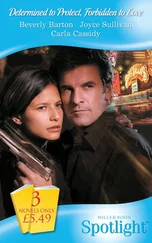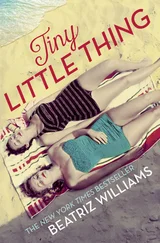When there are suitable embryos, they will be implanted, the gynaecologist reassured Orit. But I see that you’ve started smoking and that’s a great pity because the surrounding membrane is thicker among women who smoke which makes it more difficult for the sperm to penetrate.
When he stops travelling, I’ll stop smoking, was Orit’s immediate response. I hadn’t gone anywhere, but in Orit’s mind I was always on the move. And the pregnancy continued in its refusal to materialize. We lived from month to month around the schedule of treatments, unable to plan anything, re-experiencing every time the roller coaster of expectation and disappointment. And all the while the periods of silence between us grew longer, each of us withdrawing into our own private world. We could well understand why couples split up during treatment and prayed that we would get through it in one piece.

To our joy, a kibbutz chose Orit to design an entire neighbourhood. This was followed by enquiries from a number of other kibbutzim and private clients, keeping her busy all hours of the day and night. She engaged a draughtswoman who also helped to ease her solitude. My own feelings of loneliness were overcome by immersing myself in the work I loved in the fields. With each of us doing what we had to do, but separately, we were able to deal with the anguish we were both experiencing and, from time to time, also managed to get through the evenings when we were alone at home. Fortunately, the frequent visits of my parents and hers didn’t leave us with too many such hours.
Orit also began to join me on my weekly trip to the university in Jerusalem. There is a support group there for women undergoing fertility treatment and I’ve been told it would do me good to join, she said. Who recommended, when and why, she didn’t volunteer and I didn’t ask. I knew that I was no longer her confidant when it came to sharing her fears. Perhaps her parents were, perhaps a neighbour from the village.
On our long journey home after her first meeting with the group I dared to question her.
Orit uttered a string of sentences that sounded to me like a repetition of what the counsellor had told her. Giving birth is the be-all and end-all of womanhood, she said. And when a woman fails to conceive, it’s difficult, very difficult.
And you feel that way too, that giving birth is what your life is all about? I asked carefully.
What do you think, to be an architect? To design other people’s houses?
I remember that you wavered between being a painter, a dancer, or a sportswoman, I said.
Yes. I think I had skills in those areas, she said after a long silence. But that isn’t what I’m all about.
And what am I all about? I wondered. Unlike Orit, I had no remarkable skills. I also didn’t feel that my manhood revolved around having children. But are my ‘hunting’ pursuits in various parts of the world some sort of a realization of such manliness? Perhaps they are even an alternative to having children? I thought to myself.
Would having a child free me from my almost compulsive need to defend my People and my Land? And are not all these activities of mine actually pointless if they don’t in the end protect my very own offspring?
Orit continued to talk, further disrupting my already disjointed thoughts. Do you realize what a woman whose femininity remains unrealized feels? Sometimes I feel as barren as this desert around us. And sometimes like the tomboy I was at fifteen, doing my exercises on the equipment in the gym. But now I’m an ageing tomboy and my biological clock is ticking.
You’re my woman, Or, I said, and nothing can change that. She rested her head on my shoulder for the remainder of the long journey home in the dark. We were left with our own thoughts.
The meeting with the other women improved Orit’s mood and perhaps, in a roundabout way, kept us together as a couple. I already understand, she told me, that my energies are attuned to coping with just one thing, our child, and not with you as well. This, despite all the sadness it entails for you and also for me. I bit my lip, accepted what she said, and attempted to keep my love for her intact.
A little while later she said: we’ll try once more and if that doesn’t work we’ll look for an egg donor.
We both knew that that option, which would have to be carried out abroad, was expensive, a significant addition to the already high cost of the private fertility treatments we were now having. But that wasn’t what bothered me.
The child… I stammered.
Won’t be mine? Orit completed the sentence and, with a softness in her voice that I hadn’t heard for a long time, added: but it will be your child, and when we bring him up he will be our child. And that is what I want. Your child in our home.
This expression of Orit’s love overwhelmed me and I agreed. At some point in time, when a sweet little boy or girl is running around our living room among parents, grandfathers and grandmothers, we’ll forget the torment we endured. I found myself looking at little children playing in the village and felt a pang in my heart. I saw young parents running with their children and my own lack of a child pained me physically, as if my body was short of a limb. I could easily visualize myself with my children on a tricycle on the way to the playground or kicking a ball in our garden–an area I also took care of after my work in the fields was done. My desire for a child no longer stemmed only from identifying with Orit but now arose from my own newfound capacity to feel the need.
Orit’s biological clock was not the only one ticking. My father, who had handed over the management of the farm to me, was going downhill at an alarming rate. Within a short space of time he stopped taking an interest in what was happening in his fields, and not long after that ceased going out of the house altogether. The many years of hard work on the land had left their mark both on his body and his mind. Back pains that he attributed to his parachuting days in the 1960s kept him in bed and when he got up he felt acute pains in his knees. Very soon we discovered that he no longer had the strength to walk unaided. At first he refused to use a walking stick and when he finally gave in and agreed, it turned out that the stick would not support his weight and that he already needed a walking frame.
After the Six Day War of 1967, my father had joined an encampment in the arid lands of the desert and then, with his friends from the army unit, he moved to the permanent village. The place became his entire world. He did nothing but work the land and now was left without any other interests to occupy him. My mother’s attempts to get him to meet up with the village secretariat, go to events at the club, or be with friends, fell on deaf ears. He simply refused to allow others to see him in such a state. My mother sat for hours on end at the bedside of her youthful idol, watching him fall apart in front of her very eyes. In turn she too began failing at work, was unable to meet deadlines, made numerous mistakes with numbers, and was finally fired. That triggered her own downward slide.
Whichever way one chose to calculate it, the decline came too early, far too early, and pained me greatly. In my childhood and youth, my father was a source of pride. His story of being handed over as a baby by his parents to a nearby nunnery at the beginning of the German occupation, their own extraordinary tale of survival and his rescue from the nunnery after the war in the face of objections from the nuns and his own opposition, was a story I knew by heart. So was the account of their ‘illegal’ immigration to Palestine in the dying days of the British Mandate, their clash with a British patrol vessel, their swim to shore, and their time spent in a makeshift transit camp in their newfound homeland. My father’s recruitment into the paratroop unit and his participation in the liberation of the Western Wall in the Six Day War as a reservist–and already a young father–was as familiar to me as were the stories of the difficulties my parents and their friends experienced when they first came to live in the isolated and blisteringly hot desert village.
Читать дальше













